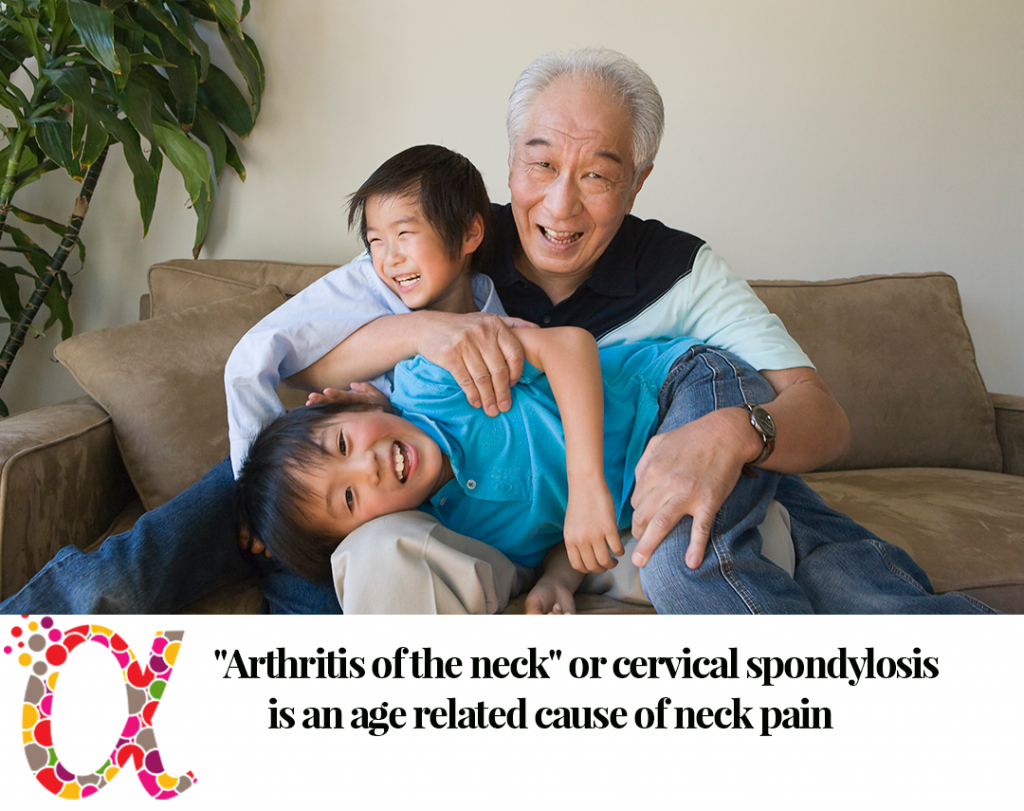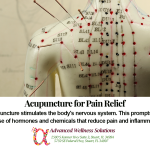What’s the difference between gentle chiropractic and traditional chiropractic? It’s all in the technique used. Overall, both approaches seek to relieve musculoskeletal pain and promote optimal health. However, they differ in their methods of achieving these goals. At Advanced Wellness Solutions, we provide patients with options tailored to their specific needs and preferences. There are […]
wear and tear of cervical discs and joints
Carpal Tunnel Syndrome Treatment
Carpal tunnel syndrome is a surprisingly common condition that causes pain, numbness, and tingling in the hand and arm. At Advanced Wellness Solutions, we take a two pronged approach to carpal tunnel syndrome treatment, using both gentle chiropractic care and acupuncture to provide carpal tunnel syndrome treatment.
What is Carpal Tunnel
The carpal tunnel is a narrow passageway in your wrist. This passageway comes up through the bones (carpals) and ligaments on the palm side of your hand. The median nerve passes through this narrow passageway to control the muscles in your hand, thumb and 3 of your 4 fingers. (The median nerve doesn’t control your pinky finger.)
When the median nerve is compressed, the symptoms can include numbness, tingling and weakness in the hand and arm.
Carpal tunnel syndrome occurs when the tunnel becomes narrowed or when tissues surrounding the flexor tendons swell, putting pressure on the median nerve. 1 This swelling causes pressure on the median nerve causing pain, numbness and tingling in the hand and arm.2 Left untreated, this pressure on the nerve can eventually cause permanent nerve and muscle damage.
 Carpal Tunnel Syndrome Symptoms
Carpal Tunnel Syndrome Symptoms
One of the most common symptoms of carpal tunnel syndrome is pain, numbness or tingling in the hand and arm. These symptoms are usually mild at first but it increase in severity as the condition progresses.
Carpal tunnel syndrome stiffness and immobility is often most severe in the morning. However, the pain from carpal tunnel syndrome is often most severe at night, preventing healthy, restful sleep.
Since carpal tunnel syndrome affects the nerves and muscles that control the hand, performing common everyday tasks like picking up a glass can become difficult. Weakness is often mild at first, increasing as the conditions progresses.
Because carpal tunnel syndrome involves the nerves, other symptoms include other symptoms such as:
- a burning sensation in the hands/fingers
- itching in the hands/fingers
- feeling as if the hands/fingers are swollen, even if they’re not.
- reduced sensitivity to hot and cold in the hand/ fingers.
In its early stages, carpal tunnel syndrome symptoms may include your hand tingles and feels weak, or the fingers numb, or both.
Diagnosing Carpal Tunnel Syndrome
Carpal tunnel syndrome involves nerve pain due to compression in the wrist. Unfortunately, pressure on nerves in the neck due to disc problems or arthritis can cause similar symptoms. To confirm the diagnosis, diagnostic imaging may be required. A nerve conduction study can measure the severity of the compression on the nerve if surgery is needed.
Carpal Tunnel Syndrome Treatment
Numbness, tingling and pain in your hands, fingers and wrist is an example of an ounce of prevention being worth a pound of cure. Early correct diagnosis and treatment can dramatically improve your outcome. Treatment modalities depend upon the cause and severity of your symptoms.
Advanced Wellness Solutions offers natural, drug free carpal tunnel syndrome treatment. Gentle chiropractic care can treat the mechanical nature while acupuncture can address the underlying symptom of inflammation that causes the tissues inside the wrist to swell.
Early intervention is important to avoid surgery. We’ve had outstanding success using our two pronged approach to treating carpal tunnel syndrome.
Carpal Tunnel Syndrome Left Untreated
It’s important to seek treatment if you have signs and symptoms of carpal tunnel syndrome that interfere with your normal activities and sleep patterns. Permanent nerve and muscle damage can occur without treatment.
You should always seek treatment for symptoms of tingling, numbness and radiating pain. These are possible symptoms of nerve impingement. Symptoms will progress if carpal tunnel syndrome is left untreated. You’ll begin dropping things. Activities that require fine finger movements, such as writing or fastening buttons, will become more difficult. You may begin to feel you are losing coordinated movement of your fingers. Moving your thumb may also become difficult. Again, these could also be symptoms of pressure on nerves in the neck due to disc problems or arthritis, so if you don’t schedule treatment with Advanced Wellness Solutions, be sure to discuss your symptoms with your health care professional.
Carpal tunnel syndrome is the compression of the median nerve which can lead to permanent nerve and muscle damage without treatment.
Should I Start with Chiropractic Care or Acupuncture to Treat Carpal Tunnel Syndrome.
It’s up to you which path you wish to take on your journey of carpal tunnel syndrome treatment.
Chiropractic care addresses the mechanics of musculoskeletal pain while acupuncture addresses inflammation (causing the swelling) and helps natural healing to occur in the body. Choosing to take a two-pronged approach by combining chiropractic and acupuncture can accelerate natural healing. Our patients who have chosen to take this approach have been delighted with the results.
Chiropractic care and acupuncture can work alone, together or even along side other medical treatments.
Which ever path you decide to take, your first appointment will take approximately 60 minutes. This gives you plenty of time to communicate your concerns to our health care providers. Whichever path you take, rest assured that the health care professionals at Advanced Wellness Solutions will work together to resolve carpal tunnel syndrome symptoms. If we can’t help, we’ll get you where you need to go for your best treatment options.
Revised July 2, 2021
Chiropractic Treatment of Neck pain: Cervical spondylosis
Sometimes referred to as “arthritis of the neck,” cervical spondylosis is an age related cause of neck pain.

If you answer yes to any of the following questions, then you may have cervical spondylosis.
- Are you over 65?
- Have you played a lot of sports throughout your life?
- Have you had a fair amount of physical trauma in your past such as multiple motor vehicle accidents?
What is cervical spondylosis?
Cervical spondylosis is the medical term for wear & tear of your cervical discs and joints. Cervical spondylosis occurs when trauma or age causes the discs to shrink and bone spurs to form and other signs of osteoarthritis to appear.
What are your risk factors for cervical spondylosis?
- Age
- Multiple neck injuries
- Jobs that have strenuous physical demands
- Genetics
Cervical spondylosis is very common and worsens with age. There are some suggestions that there is a genetic component to the severity of degeneration that will occur. This means that if someone in your family has serious arthritic symptoms in their neck then you may be more likely to develop more severe cervical spondylosis.
According to the Mayo Clinic,
“More than 90 percent of people older than age 65 have evidence of cervical spondylosis and osteoarthritis that can be seen on neck X-rays.”
What are the symptoms of cervical spondylosis?
Often cervical spondylosis produces very few symptoms. When symptoms do occur they are often pain in stiffness located in the area of the neck.
However symptoms can arise from the bone spurs and disc height loss associated with cervical spondylosis. Bone spurs and loss of disc height can narrow the space required by the spinal cord and nerve roots.
If this space is compromised it can cause symptoms that present as:
- Numbness or tingling
- Loss of balance
- Loss of reflexes, decreased sensation and loss of muscle strength along one part of the arm
- Loss of bladder or bowel control.
If you are experiencing sudden numbness, loss of strength or loss of bladder or bowel control seek emergency medical help as soon as possible.
What causes cervical spondylosis?
There are many causes for cervical spondylosis and all increase in severity with age. The most common causes of cervical spondylosis are:
- Dehydrated discs
- Herniated discs
- Bone spurs
- Stiff ligaments
What are the treatments for cervical spondylosis?
Treatments for cervical spondylosis are geared toward pain relief and motion preservation.
Chiropractic adjustments can help to reduce the loss of motion in cases not presenting with worsening neurological symptoms.
The treatments available for cervical spondylosis are:
- Chiropractic adjustments (in cases not presenting with worsening neurological symptoms)
- Range of motion exercises
- Cervical stretches
- Cervical traction
- Pain medication
- Steroid injections
- And in cases of severe neurological symptoms surgery
A word of caution to anyone experiencing cervical spondylosis/arthritis in the neck. Cervical traction should only be done under direct supervision of a medical professional! Even at home units leave the potential for serious harm and should only be used under a professional’s guidance. The infomercials and online ads make it look easy to use, but please check with your healthcare provider to see if this treatment is right for you.
If you live in or near Stuart, Fl and are experiencing any of the symptoms associated with cervical spondylosis symptoms, please contact Advanced Wellness Solutions to schedule an appointment. If you’re outside this area, please contact a local chiropractor.




